we are investigating an issue on one of our boards where the TUSB7340 is not recognized as a PCIe device. The board has been in production for several years and though the TUSB7340 connection was not the most reliable we generally found a combination of COMe module and carrier that worked. But now we've run into some more severe problems.
We checked power, clock and reset sequencing and the PCIe signals. Everything checks out ok.
Power supplies could be better but I've seen worse. However, I noted that based on the measurement on the oscilloscope I could determine whether the TUSB was found as a PCIe device:.
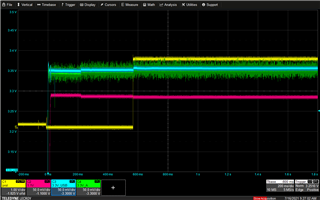 TUSB found
TUSB found
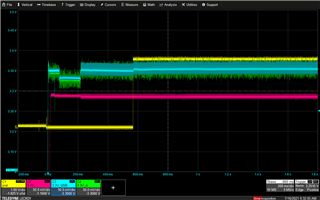 TUSB not found
TUSB not found
When there was little noise on the +3.3V_USB rail (the 3.3V analog supply) the device was found. To determine whether this noise caused the issue or was caused by the issue I connected an external power supply.
With the external supply the noise on the 3.3V_USB supply still appeared in some cases, and when it did not appear the device was found. So it seems it's not caused by the on-board supply.
We noticed that the noise starts approximately at the time the PCIe reference clock becomes active.
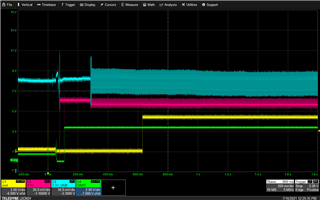
The spectrum analyzer function of our scope shows a peak at 500MHz. Zooming into the trace shows something like an oscillation on the range of 12 or 24kHz:
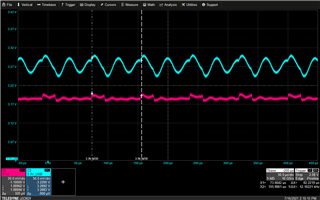
Do you have any idea what might cause this? And is this likely to be the cause, or is it an effect?
I'd appreciate any thoughts you have on this. Please let me know if you need further information or measurements
Thanks!
Best regards
Ferdinand


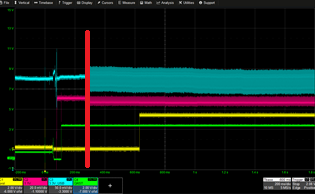
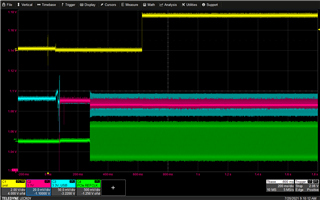 TUSB not found
TUSB not found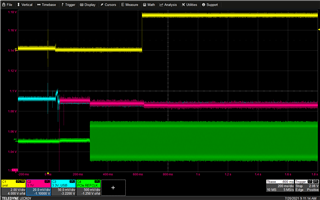 TUSB found
TUSB found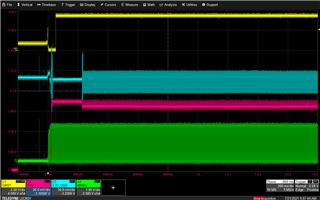 TUSB not found
TUSB not found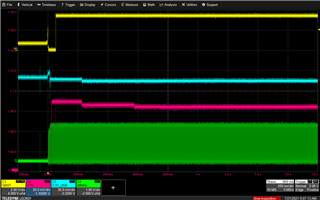 TUSB found
TUSB found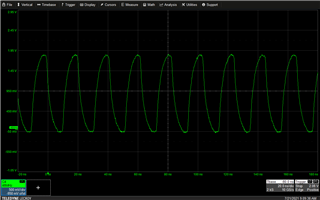
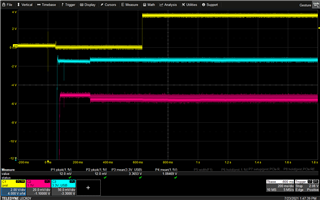 TUSB not found 8, added caps to C4809 and C4810, added 2x 0402 4,7uF to each Vcc, replaced L55 with wire
TUSB not found 8, added caps to C4809 and C4810, added 2x 0402 4,7uF to each Vcc, replaced L55 with wire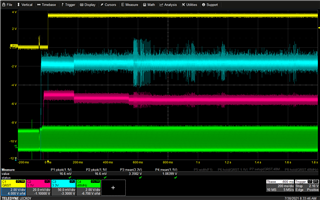 TUSB found - additional caps, no ferrite for 3.3V analog and 1.8V oscillator with external supply
TUSB found - additional caps, no ferrite for 3.3V analog and 1.8V oscillator with external supply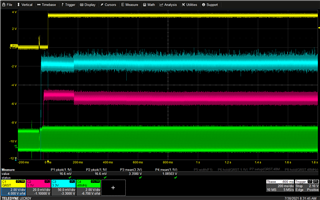
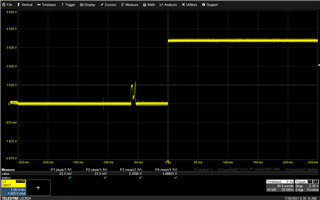 GRST
GRST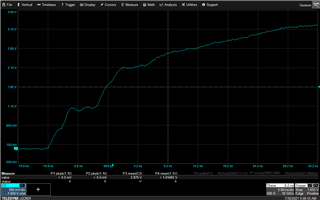 GRST close up
GRST close up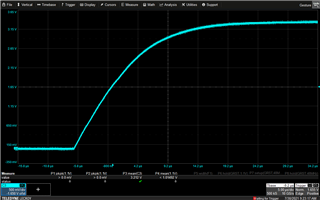 Rise-time increased by about 1000x, but it seems to improve things.
Rise-time increased by about 1000x, but it seems to improve things.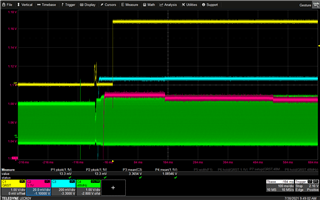 TUSB found
TUSB found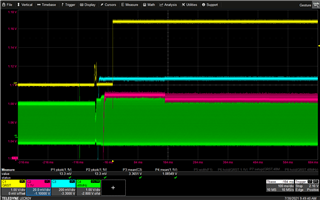 TUSB not found.
TUSB not found.
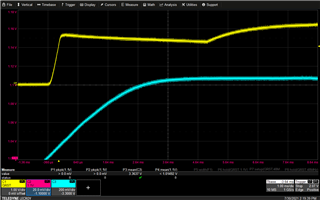 (close up)
(close up)